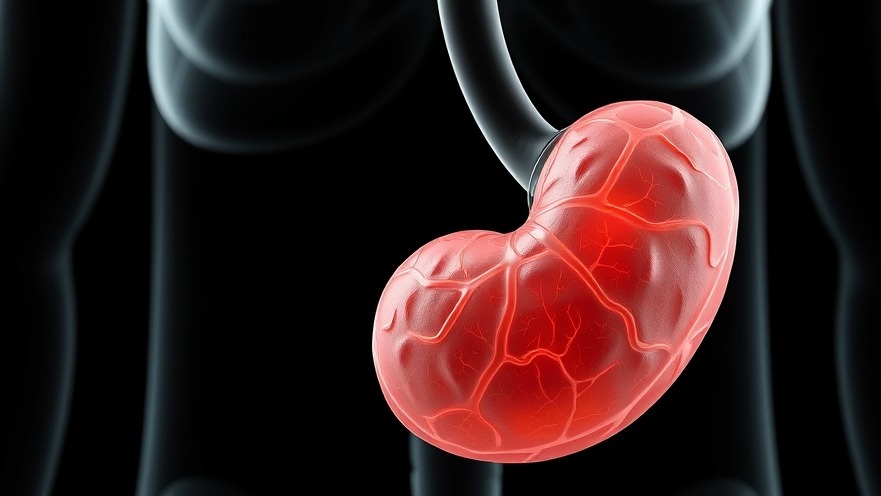
The Hidden Importance of Your Gallbladder
Often regarded as a mere storage facility for bile, the gallbladder plays a vital role in digestion, fat absorption, and regulating cholesterol levels. This small, pear-shaped organ not only stores bile produced by the liver but also secretes it when needed, helping to break down fats and absorb vital nutrients such as vitamins A, D, E, K, and omega-3 fatty acids. Moreover, the gallbladder aids in detoxification, acting as a buffer against toxins from the liver. Without it, individuals may experience digestive complications, making it crucial to understand its functions before considering surgical removal.
In the video 'Never Get Your Gallbladder Removed', the discussion highlights the vital functions of the gallbladder and the misconceptions surrounding its removal, prompting deeper analysis on our part.
Debunking Misconceptions Around Gallbladder Surgery
Despite the frequency of gallbladder removals—over 3,000 surgeries daily in the United States—many individuals are unaware of the implications of this procedure. It is vital to recognize the misconceptions that often accompany gallbladder issues. Surgeons may claim that surgical removal is the only option; however, non-surgical alternatives, like oral bile salts, exist and may successfully dissolve gallstones without the accompanying risks of surgery. The prevalence of misinformation highlights the importance of informed consent, whereby patients are made aware of all available options and the inherent risks involved in their decisions.
Nutritional Interventions: Your First Line of Defense
Diet and nutrition remain foundational in managing gallbladder health. High-cholesterol, low-bile concentrations lead to gallstone formation; therefore, dietary modifications can play a significant role in preventing gallstone development. Consuming dietary fats that promote bile production, such as fatty fish and egg yolks rich in choline, can support the gallbladder’s health. Additionally, incorporating bitter greens and fruits, like lemons, can stimulate gallbladder contractions, facilitating better bile flow and digestion.
Understanding the Consequences of Gallbladder Removal
Post-surgery complications can be severe, with studies showing that up to 40% of individuals experience ongoing symptoms years after gallbladder removal, including digestive issues, increased cancer risks, and weight gain. Such information is vital for individuals faced with the decision of whether to proceed with gallbladder removal, highlighting the need for comprehensive discussion with healthcare providers about potential long-term consequences.
Practical Strategies for Gallbladder Health
Incorporating simple lifestyle changes can significantly impact gallbladder health. Individuals should consider adhering to a low-carb, intermittent fasting diet that naturally concentrates bile and supports digestive health. Staying hydrated, avoiding low-fat diets that inhibit bile production, and minimizing stress are essential for maintaining digestive functions and overall health. In addition, dietary supplements, such as probiotics and herbal remedies, can provide further support, allowing individuals to manage their gallbladder health proactively.
As we dissect the importance of gallbladder health, it is evident that knowledge empowers patients. By challenging conventional narratives surrounding gallbladder removal and emphasizing the organ's crucial role, individuals can make informed decisions that prioritize their long-term health. The video “Never Get Your Gallbladder Removed” delves into these critical insights, presenting a comprehensive examination of the gallbladder’s importance and alternative management options, urging viewers to explore all paths before considering surgery.
 Add Element
Add Element  Add Row
Add Row 



Write A Comment